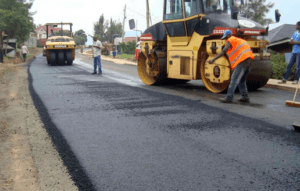Ghana government asked to restore reputation by paying contractors
 The next government irrespective of which political party wins the Presidential Elections in December, from 2021 must restore government’s reputation by paying all contractors.
The next government irrespective of which political party wins the Presidential Elections in December, from 2021 must restore government’s reputation by paying all contractors.
Mr Habibu Adam, a Senior Economist at the Office of the Senior Minister told the Ghana News Agency in an interview in Accra on Sunday that in the past, banks used to chase people for loans and were ready to finance GOG contracts; “but in recent times, banks are not enthused about GOG contracts.
“In fact, you must secure it fully before they will advance monies to you. This is not good for any economy. It makes cost of capital very high because there is always the feeling that government will not pay on time even when construction is done ahead of schedule”.
He said Government must therefore work to ensure that the way in which contracts are awarded by GOG is planned in a way government can guarantee their payment.
“With this, the banks will lend wholeheartedly and at a reduced lending rate if they are assured of payments on time. The banks cannot survive without loans so why will they not lend when they are valid contracts?
Mr Adam stressed that the next government must also roll-out measures to formalize the informal sector of the economy, simplify the general consumption tax, enhance property and rent tax collection, proper management of land resources through digitization, and investments in the tourism sector.
He said they must also enhance the efficiency of the revenue generating Ministries, Departments, and Agencies (MDAs), construction and tolling of market centres and car parks in densely populated enclaves among others.
Mr Adam said government must further adopt a 24/7 economy “if Ghana’s economy is to grow above the 7 per cent it had averaged three years before the COVID-19 pandemic”.
He said aggressive infrastructure plan was key for post COVID-19 recovery especially economically bankable projects that could pay for themselves.
“Until the present government came to power, the infrastructure spending was skewed in favour of Accra and Kumasi to the neglect of other regions and districts.
“With the one constituency, one million-dollar policy, we are beginning to see some upliftment in the infrastructure at the constituencies”.
Mr Adam suggested pragmatic execution of the railway master plan for which the Western line was under construction, the Eastern Line was going through procurement and the central spine yet to hit the market.
“So for the railway sector, only a little tweaking needs to be done. It is envisaged in the master plan that the rail tracks will pass through all the major towns, where there are major mineral deposits,” he said.
On the road sector, government must look at dualization of the arterial roads out of Accra to the major cities, Mr Adam noted.
“The Eastern corridor road is also key to the economy especially in carting food items from the North to the South through a shortest possible route. Government must prioritize the cocoa roads the same way it will prioritize the Eastern corridor road and ensure that they are done”.
Mr Adam said the most important infrastructure that would have one of the greatest impact on the economy was the dredging of the Volta river all the way to the white Volta at Yapei or the black Volta at Buipe depending on what is most cost-effective and have better economic impact.
“The dredging will significantly cut down the journey from Tema to Yapei,” he said.
He said Government was currently constructing the rail line from Tema to Akosombo.“The significance of this is that when complete, goods earmarked for the North and the Sahelian regions can be cart from Tema to Akosombo and then taken by the ferries to Yapei or Buipe to discharge. In this case, all the long vehicles from the Sahelian regions will now pick their goods from the inland port to be built at either Yapei or Buipe.
“To make it better, another inland port can be built at the Paga border and when the central line is complete, goods meant for the Sahelian regions can be taken by train to the Paga border for them to be discharged.
“In this way, the long trucks will not need to travel to Ghana and cause us roads accidents and deteriorations of our roads,” he said.
Source: GNA
